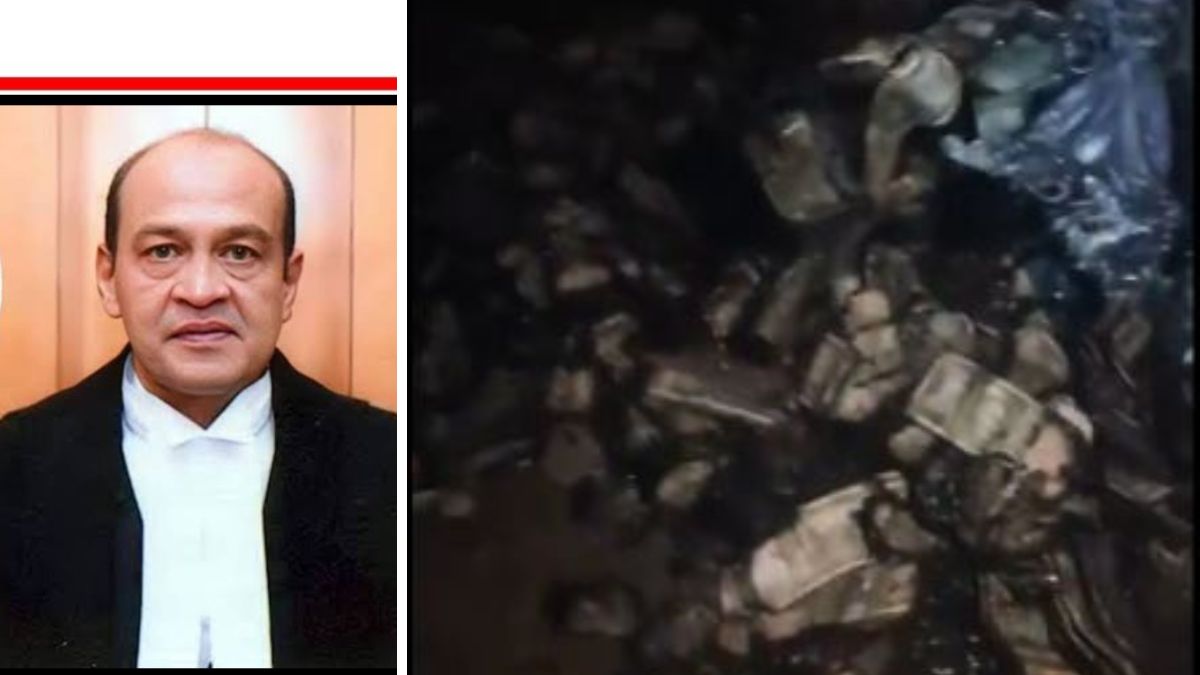Cash-at-home case: Constitutional questions arise as SC prepares to hear Justice Yashwant Varma's petition
 Justice Yashwant Verma (Right) Burnt pile of cash found at his official residence | X
Justice Yashwant Verma (Right) Burnt pile of cash found at his official residence | X
The Supreme Court on Wednesday said it will constitute a bench to hear Justice Yashwant Varma's petition challenging the in-house inquiry committee's report which indicted him in the cash-at-residence row soon.
During the mentioning before the bench headed by Chief Justice of India B.R. Gavai, Justices K. Vinod Chandran and Joymalya Bagchi, senior advocates Kapil Sibal, Mukul Rohatgi, Rakesh Dwivedi, Sidharth Luthra and Siddharth Aggarwal appeared for Justice Verma submitted, "We have filed the petition on behalf of the Allahabad High Court Judge. Some constitutional issues are there. I request you to constitute a bench as soon as possible."
CJI responded that it may not be proper for him to take up that matter.
"We will just take a call and constitute a bench," he told the battery of lawyers appearing for Varma.
Justice Varma has also challenged the recommendation made by the former chief ustice of India Sanjiv Khanna to the president and the prime minister to initiate impeachment proceedings against him. Justice Varma stated in the petition that the in-house inquiry committee made the findings without giving him a fair opportunity to respond. He alleged that the committee proceeded in a pre-determined fashion and even without finding any concrete evidence, merely drew adverse inferences against him after reversing the burden of proof.
In his petition, Varma assailed the CJI’s letter to the president and prime minister recommending his removal. He claims this bypasses constitutional procedure and legislative safeguards under Articles 124 and 218.
“The procedure is administrative in nature and not grounded in statute or the Constitution. It cannot be used to recommend removal from constitutional office. The inquiry began without any formal complaint, based only on presumptions and unverified information. This is contrary to the very design and objective of the In-House Procedure,” the plea stated.
The plea further stated that the Committee denied him access to evidence, withheld CCTV footage, and offered no chance to rebut allegations. Key witnesses were examined in his absence, violating natural justice. Its inquiry ignored core questions like who placed the cash, whether it was genuine, or what caused the fire. These questions were central to establishing guilt or innocence.
The plea also questioned as to how within hours of receiving the final report, the CJI asked him to resign or face removal. No personal interaction or opportunity to explain his case was given.
“Earlier judges in similar situations were granted personal hearings before any action. The deviation in this case is arbitrary and violates established conventions. Contents of the confidential Final Report were leaked and misrepresented in the press. This aggravated the reputational damage and undermined the sanctity of the process,” the plea reads.
India